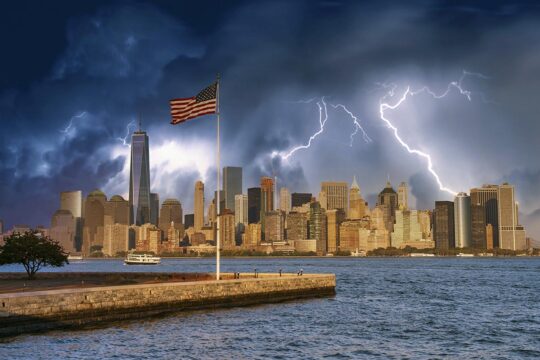Barricades were lifted in the capital of the Central African Republic as tensions eased Wednesday, but a UN expert warned the country could descend into civil war unless the latest violence is contained.
The country's interim president Catherine Samba Panza returned to the capital Bangui after cutting short a trip to the UN in New York, following sectarian clashes at the weekend that left 36 people dead and sent nearly 30,000 others fleeing from their homes.
The presidency said Samba Panza was due to speak on the crisis shortly.
Fear gripped Bangui's streets after the clashes sparked by Saturday's murder of a Muslim motor-taxi driver in the flashpoint PK-5 district, with fears growing of a return to a deadly sectarian conflict that broke out in late 2013.
Angry Muslims with grenades and guns carried out reprisals against Christians in Bangui, and members of the feared "anti-balaka" (anti-machete) Christian militia began arriving from the provinces in response.
Some 20,000 terrified residents fled to camps by the airport, where French and UN peacekeepers from the 10,000-strong MINUSCA force are based.
A few petrol stations and shops reopened on Wednesday in tentative signs of a return to normal, while international and local troops were out on patrol, demanding protesters clear the streets.
UN peacekeepers and French soldiers deployed in the country since December 2013 began removing barricades that protesters set up on major thoroughfares and around the airport, where some 20,000 people have taken refuge near French and UN bases.
But the PK-5 and the eighth districts remained very tense, residents said.
One resident told AFP anti-balaka forces were "positioned in groups, armed with machetes" in the streets of two neighbourhoods near the PK-5.
Marie-Therese Keita Bocoum, the UN's independent expert on CAR, warned there was a risk of the situation spiralling into a civil war if it is not brought under control.
"I fear that if this violence is not rapidly contained, targeted attacks based on ethnicity and religion inevitably risk increasing and leading to a real civil war," she told the UN Human Rights Council in Geneva.
The International Criminal Court's chief prosecutor Fatou Bensouda also called for those involved in the clashes "to immediately cease and desist the violence", adding that any war crimes committed will be punished.
The PK-5 neighbourhood was the epicentre of an unprecedented sectarian conflict pitting Christians against Muslims in 2013 and early last year, triggered by the ousting of president Francois Bozize, a Christian, by mainly Muslim Seleka rebels.
Earlier this year UN rights investigators said estimates of between 3,000 and 6,000 dead in the conflict "fail to capture the full magnitude of the killing that occurred".
- Disarmament is 'absolute priority' -
In an address broadcast on national radio late Tuesday, Samba Panza -- who the protesters are demanding step down -- appealed for peace and urged citizens to return to their homes.
Bocoum said that disarming armed groups should be "an absolute priority" ahead of presidential and general elections due by the end of the year in CAR, one of the world's poorest countries.
She called on the government to "present a realistic and concrete plan" for disarmament and for reforming the security services.
But Thierry Vircoulon of the International Crisis Group said elections, which have already been pushed back several times, were unlikely this year.
"With international forces unable to retake control of the capital, it is difficult to imagine," the ICG's Central Africa project director told AFP in the Gabonese capital Libreville.
Failure to disarm and reinsert former combatants into society "will block the elections," he warned, adding: "The current flare-up is the result of an accumulation of errors by the international community."
MINUSCA denied reports that its troops on Monday killed three people after opening fire on several hundred demonstrators heading towards the presidency to demand Samba Panza's resignation.
UN spokesman Rupert Colville said in Geneva that some 500 prisoners had escaped from Bangui's main prison on Monday night, adding to the climate of insecurity.
The UN humanitarian coordinator in the country, Aurelien Agbenonci, meanwhile strongly condemned a string of attacks against aid organisations, adding: "All perpetrators of crimes against humanitarians will be held accountable."
One in 10 Central Africans -- 460,000 people -- have sought refuge outside the country, mainly in Cameroon, Chad, DR Congo and Congo, since 2013.


